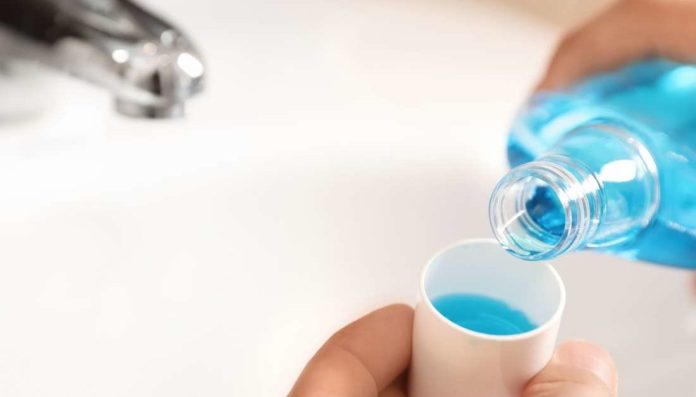Tooth decay, resulting to trips to the dentist, and even loss of teeth, is a common problem. A new study by researchers at the UCLA School of Dentistry describes the development of a new mouthwash that could eliminate the bacteria that are the primary cause of tooth decay. The findings were published in the June edition of the Proceedings of the National Academy of Sciences.
The new study was led by Wenyuan Shi, PhD, chair of the section of oral biology at the UCLA School of Dentistry. It describes how a specifically targeted antimicrobial peptide (STAMP), C16G2 works to destroy only the harmful acid-producing Streptococcus mutans bacteria, which are the primary cause of tooth decay. Of importance, C16G2 does not harm the beneficial bacteria that reside in the mouth.
The study authors note that their study marks a critical advance because the vast majority of bacteria present in the human mouth are not harmful. Most broad-spectrum antibiotics and mouthwashes indiscriminately destroy both harmless and harmful bacteria, and their effects last for approximately 12 hours. Furthermore, the use of broad-spectrum antibiotics can seriously disrupt the body’s ecological balance; the result is an increased susceptibility to infection. Thus, broad spectrum antibiotics and mouthwashes are ineffective treatments for bacteria-induced tooth decay.
Dr. Shi explains that the STAMP approach could offer a unique solution for re-engineering the mouth’s microbiome for long-term health.C16G2, which is currently delivered by a gel tray, is being developed for use in preventing tooth decay and cavities under an investigational new drug application with the Food and Drug Administration (FDA) by Los Angeles-based company, C3 Jian, which was founded by Dr. Sh. It is currently in Phase 2 clinical trials.
A number of clinical studies have found that changes in the composition of our microbiome correlate with many diseases. When bacteria cause diseases, it is usually because they grow beyond their normal population size or niche (which can occur when the body’s immune system is compromised), or because bacteria invade areas of the body that are normally sterile, such as the blood, lower respiratory tract or abdominal cavity.
Dr. Shi notes that the STAMP approach might also be used to treat and prevent other microbiome-related diseases; thus, it could offer health benefits beyond the field of dentistry. He explained, “This is a truly momentous discovery that provides proof-of-concept on re-engineering human microbiome for treatment and prevention of diseases. It demonstrates that this targeted approach actually works and that it is an incredibly powerful tool that can be used to manipulate our microbiomes, and to identify and study the ecological functions of the cornerstone species within the community.”
The study’s editor, Dr. John Mekalanos, chair of microbiology and molecular genetics at Harvard Medical School, noted, “The challenge of trying to modulate the abundance of a single member of our complex microbiota is enormous. Dr. Shi and his colleagues have provided an exciting new way to do just that.”















